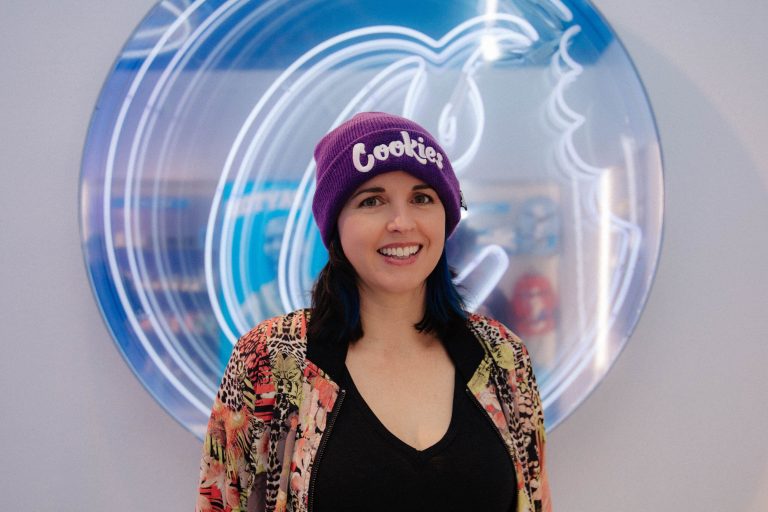Moving from a position in a consulting firm advising Fortune 10 companies to SVP of Retail and Marketing for one of the world’s leading cannabis brands may seem like a daring career transition for some, but for Crystal Millican, a former U.S. Fulbright Scholar to Mexico, it was a no-brainer. When Millican’s company took on globally-recognized cannabis brand Cookies as a client and the cannabis giant offered her a chance to come on board, she took the opportunity and never looked back.
Founded in 2010 by rapper and entrepreneur Berner and Bay Area cultivator Jai, in 2021, Cookies became the first cannabis brand to be named one of America’s Hottest Brands by AdAge. In addition to boasting more than 2,000 products and 58 retail locations in 18 markets across 6 countries, the company prides itself on its work to help communities disproportionately affected by the War on Drugs. High Times sat down for a sesh with Millican to talk about her journey in the cannabis space.
To start out if you just want to talk a little bit about how you got into the industry, and then how you started working with Cookies and what your journey has been.
I was an executive at a management consulting firm and [I] was the executive who was like “We need to be studying the cannabis space.” Also [I] notice[d] all the intellectual and regulatory hurdles that companies and brands were going to have to jump over and through in order to be successful. I really thought the businesses that could turn those challenges into opportunities were going to get head starts in the cannabis industry. And [I] really felt passionately that brands would win at the end of the day, true, authentic brands. Thankfully, Cookies became a client and, pretty soon after that, offered me an opportunity. [I] knew it was going to be a once in a lifetime opportunity for me to make that leap and [I am] grateful I did every day.
I know that for you—and I know this is true for Cookies in general—it’s really important to make sure that BIPOC people have a seat at the table when they historically have been behind the scenes of cannabis. So why is that so important to you and what do you do to try to make sure things are more equitable?
I think that really starts with [our] founder, Berner, who’s Mexican-American and, thankfully, has one of the most commanding and compelling voices in cannabis. As I think about it—as Cookies thinks about it—I think what we do and how we ground ourselves is all about honoring the plant. The people who grow it, the people who pack it, the people who sell it, the people who experience it, that’s really our focus. And BIPOC people touch every aspect of that seed-to-sale process.
And, of course, I think the same can be said for women and femme-identifying people that were involved with every process in cannabis as well. So how do you try to make sure that’s included as well and how do you feel as a woman in the industry that you’ve been received and the challenges you still face?
As a woman in the industry, I feel incredibly bullish and inspired. Still, there’s plenty of work to do in the future. I see the cannabis industry having the opportunity in front of us to leave behind glass ceilings, leave behind pay gaps, leave behind bias and stereotypes and other constructs that have made it much more difficult for women and femme-identifying individuals to achieve their dreams.
Executive teams, board rooms, investors, we’re all on the hook for growth when it’s not easy in cannabis. I think we have this unique opportunity in cannabis, where there is time to take DEI [diversity, equity, and inclusion] and put it as a core value. That’s something we grow upon which is an opportunity that we have now versus other industries that have been in play for decades or hundreds of years.
I’m very grateful that, probably for the first time in my career, I can come to work as my authentic self. That’s a big thing for Berner, whether it’s a budtender or me and my role, that you are you and that you’re not trying to be anyone else. What it means as a woman [is] I’m not having to expend energy and time bending myself like a human pretzel to get my voice across.
But I’d be lying if I said I never feel bumps and bruises, because that can exist in every industry. I’ve got two daughters. I have to leave work trips early to change diapers and put my kids to bed. Am I feeling so great and inspired about womanhood that that doesn’t register in my mind as something I’m having to do? No. I think there’s more work for all of us to do. Every woman and femme-identifying person I’ve had the privilege and honor to interact with and work with in the cannabis industry is seeking the same thing, which is to smooth out that path so that, with each generation that comes after us, there’s less bumps and bruises along the way. We’ll just keep that cycle going.
